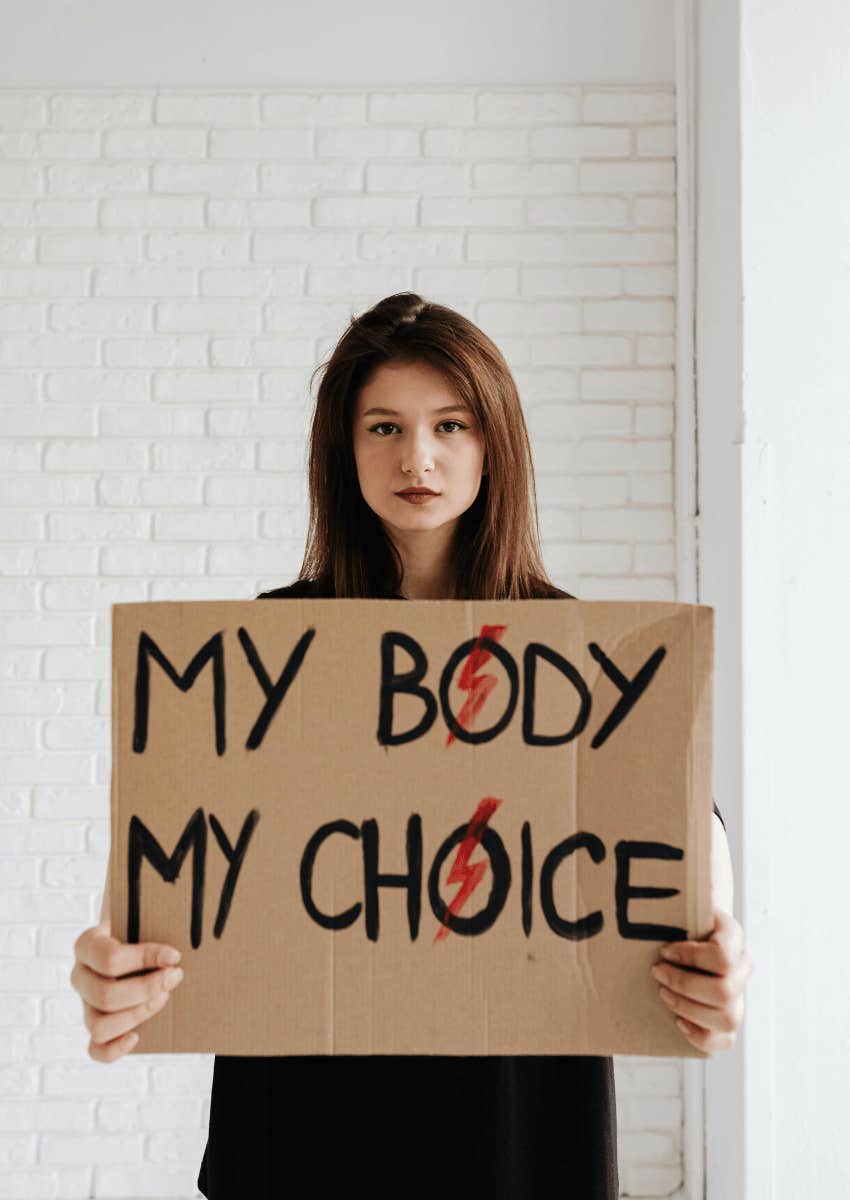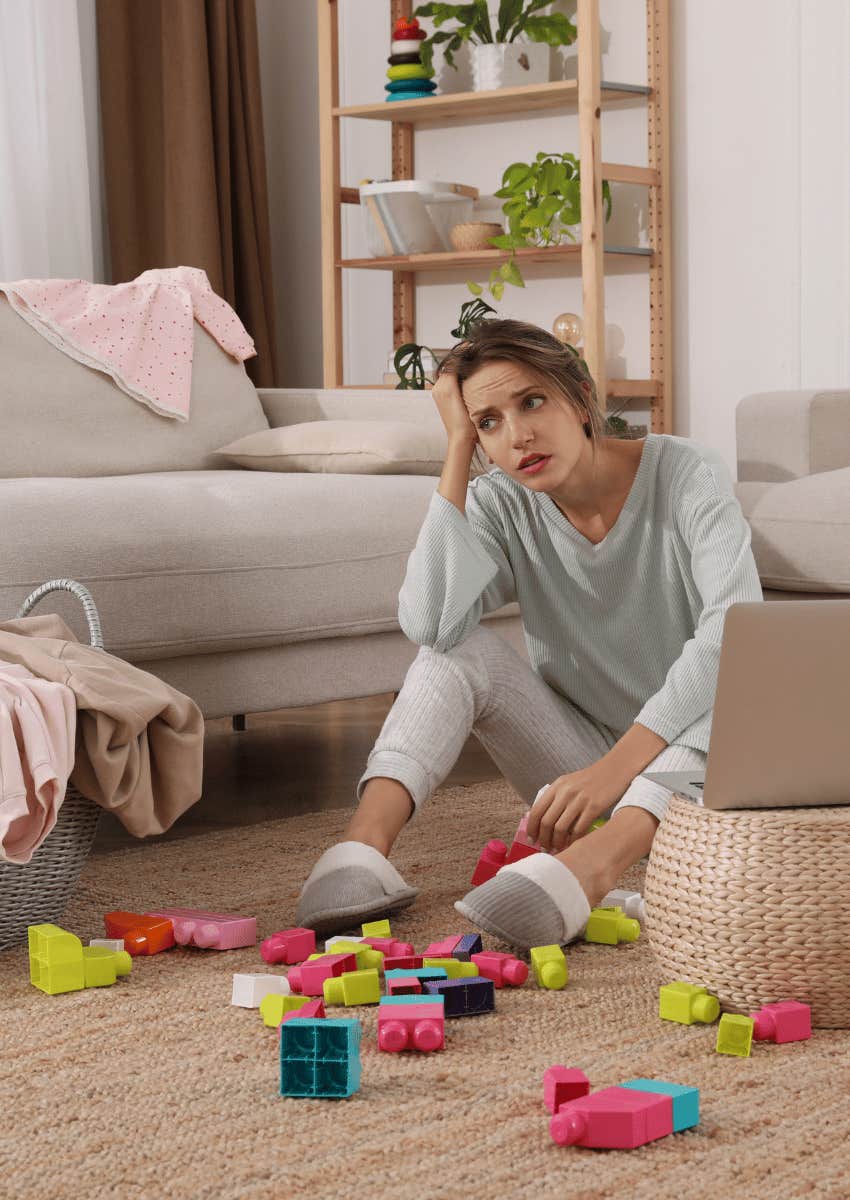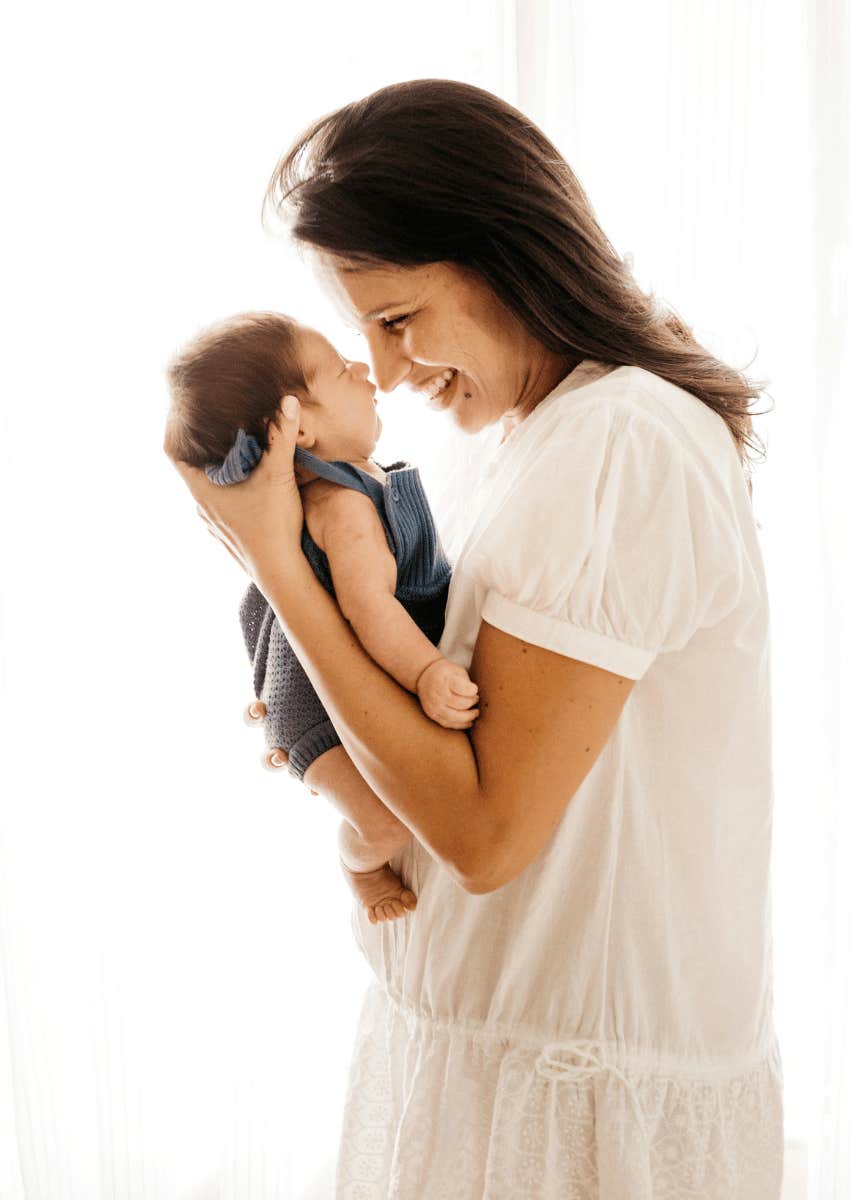Editor’s Note: This is a part of YourTango’s Opinion section where individual authors can provide varying perspectives for wide-ranging political, social, and personal commentary on issues.
I wasn’t sure whether or not I should ask my recently married coworker if he and his wife planned to have kids. It can be such a loaded question. What if he thought I was implying that they should have kids? What if they were trying and having trouble? What if he and his spouse weren’t in agreement on the kid question?
Finally, I bit the bullet because we were at a conference with a lot of one-on-one time, and we were running out of things to talk about. I prefaced the question by letting him know that I had no agenda and that he was free to tell me to mind my own business.
Luckily, he didn’t seem to mind. He said, “We both want kids. But it doesn’t seem feasible. I think we’d have to move to another country.”
His answer stayed with me. He was right that he and his spouse would get more support in nearly any other high-income country and more than a few other countries to boot. It also got me thinking — if he and his spouse were to opt out of parenthood, would they be choosing not to have kids?
We see the term “childfree” thrown around a lot these days, a term that is intended to empower those who are opting out of parenthood of their own volition, not because of fertility challenges or because “it just didn’t happen.”
But when a person who isn’t facing fertility challenges, who can “make it happen” if they so choose, ends up opting out because they fear the realities of modern parenting, what kind of choice is that?
Many important conversations are being had these days about how needlessly difficult modern parenthood is and many important conversations about the right of every person, particularly every woman, to opt-out. But we’re not talking much about the right to opt in. I sure wouldn’t want to be faced with deciding whether or not to have kids today.
 Photo By: Kaboompics.com | Pexels
Photo By: Kaboompics.com | Pexels
Back when I had my babies, Obama was still President, and I still dared to hope. I thought that George W. Bush was the worst thing that ever had, or ever could, happen to the White House — and he was gone, so problem solved.
All our problems felt solvable back then. The impending climate crisis was scary, to be sure, but it was a ways off, and we’d surely fix it, just like we’d fixed that hole in the ozone layer.
Other problems, like abortion access, had already been solved, and I had no reason to suspect we might unsolve them. Besides, the first woman was about to be elected President, and not only would she protect us, but she would also tie up all those loose threads that the Women’s Liberation Movement left hanging.
Oh, and the Internet! Facebook! Twitter! They were still playgrounds in which we romped blissfully around, sharing unfiltered photos, signing petitions for good causes, and learning how to fix leaky faucets.
Back then, moms on the Internet were all smiles, making occasional poop jokes and offering endless inspiration for creatively shaped peanut butter and jelly sandwiches. I had my short-lived blog on BabyCenter, which covered everything from pregnancy power meals to tips for Dads during those early newborn days.
Back then, we progressed through pregnancy and childbirth with nary an inkling of the financial, emotional, and mental challenges that awaited us on the other side. People talked about them only in whispers, and the general message was that we just had to buck up and hack our way through them because that’s what everyone else was doing, and no one else seemed to be complaining.
When I read Rachel Cohen’s Vox article, How Millennials Learned to Dread Motherhood, I was incredibly intrigued, partially because I had such a hard time relating. As a Xennial on the outermost edge of the Millennial generation, by some definitions, I hadn’t been taught to dread motherhood at all.
Motherhood had been sold to me as something I could have alongside an equally fulfilling career. I could post cute baby photos on Facebook, feel an enhanced sense of purpose, and still find meaning in my day-to-day work.
Everyone would rally around me because everyone loves mothers, and my husband would pitch in because that’s just what husbands do these days. I’d jog with my baby in a stroller, pack the freezer full of Tupperware and breast milk, crush it at work, and make it all look easy. I mean, really. How hard could it be?
Now that women are speaking up, exposing modern motherhood for the tiring, thankless, and isolating experience that it often is (but doesn’t need to be), many more of us seem to be on the fence about having kids.
 New Africa | Shutterstock
New Africa | Shutterstock
More of us being on the fence is potentially a good thing. From a quality of life standpoint, we all benefit from declining fertility rates — and women benefit in particular.
The economists who issue dire warnings about the “profound economic consequences” resulting from the “collapse” of global fertility only consider the consequences within our current and deeply flawed economic system. They see not an opportunity to transition to a care-based, solidarity economy but instead see an existential threat to the extractive, exploitative system we currently have in place, one that relies upon a regenerating pool of unpaid and underpaid laborers.
This little nugget from The Economist says it all: Whatever some environmentalists say, a shrinking population creates problems. The world is not close to full, and the economic difficulties resulting from fewer young people are many. The obvious one is that it is getting harder to support the world’s pensioners. Retired folk draw on the output of the working-aged, either through the state, which levies taxes on workers to pay public pensions or by cashing in savings to buy goods and services or because relatives provide unpaid care.
In other words, humans exist as vessels from which to extract outputs, and wealth creation depends upon “relatives” (i.e., women) who provide unpaid caregiving services. Women need to save this system by birthing more future laborers and providing more unpaid caregiving services in the process. Give me a break.
I’m no pro-natalist, not by any stretch of the imagination. We need to keep fighting to ensure that women can opt out of parenthood, whether it’s opting out of an unplanned pregnancy or simply making an informed, autonomous choice to forego children.
In fact, according to the Pew Research Center, 57% of adults under 50 cite “just not wanting to” as a major reason that they are unlikely to have children, with 20% saying “they just don’t like kids.” These are the absolute best reasons not to have children. Even under the best of circumstances, parenthood is a long-term, intensive commitment, and if it’s something you don’t think you’ll enjoy, by all means, don’t sign yourself up!
Society, of course, is still insistent on convincing women that motherhood is our manifest destiny, so hurrah for the women who are pushing back and firmly saying, “No, thank you, it’s not for me.” Hurrah for women who are joyfully pursuing other life journeys and challenging rigid gender norms.
 Jonathan Borba | Pexels
Jonathan Borba | Pexels
In a perfect world, those of us who do want children could help to ensure the continuation of our species, and those of us who don’t want children could help to keep growth rates in check.
It could and should be a win-win. But once you start delving into the other major reasons people under 50 don’t plan to have kids, things become murkier:
- 44% want to focus on other things
- 38% have concerns about the state of the world
- 36% can’t afford to have a child
- 26% have concerns about the environment
A desire to “focus on other things” is absolutely a valid reason to forego children; it also highlights just how intensive modern parenthood is—and particularly modern motherhood—so much so that those who become parents have a hard time focusing on much else. Careers suffer, friendships suffer, hobbies and self-care suffer — all because we live in a society and economy that doesn’t value caregiving, doesn’t approach it as a collective effort, and offers families little to no support.
Then there’s the state of the world, financial concerns, environmental concerns — all factors that would also give me enormous pause were I deciding whether or not to have kids today.
And if I were to opt-out, would that be a decision made from a place of empowerment or a decision made from a place of fear? Historically, mothering hasn’t been seen as a particularly feminist act. We tend to admire the women who have bucked convention by not having kids or those who have leaned in and ventured forth into the wide, wide world to do Important Things on top of their (less important) mothering responsibilities.
There’s a growing wave of feminism, which I’ve seen gaining momentum right here on Substack, that is not celebrating the repudiation or trivialization of motherhood but rather reclaiming its intrinsic value. There’s Angela Garbes, author of Essential Labor: Mothering as Social Change; Elissa Strauss, author of When You Care: The Unexpected Magic of Caring for Others; Zawn Villines, creator of the Liberating Motherhood Substack, and other Substack writers too numerous to list here (but perhaps I’ll make a directory one of these days).
Some of us are, or have been, “career women,” and we’ve realized two important truths along the way:
- Despite its needless challenges, motherhood is a singularly profound and profoundly humbling experience that has shaped us and helped us grow in countless ways.
- Despite its lip service, capitalism doesn’t care about motherhood beyond its capacity to produce future workers and keep the little ones out of everyone’s hair so the rest of us can engage in our all-important, all-consuming “economically valuable” labor.
By no means do I wish to be that annoying mom who can’t shut up about how amazing motherhood is and how every woman needs to try it. I also don’t want to be that annoying career feminist who makes fun of stay-at-home moms and believes that her job is far more important than those of the caregivers and domestic laborers who make her work possible.
One could argue that there are few things more important in life than giving and receiving care. And while caregiving can take place in many contexts, wouldn’t it be nice if rising generations of women could feel empowered to choose motherhood if they so wished, without fear of marginalization, exhaustion, and isolation? Without fear of financial fallout or the bleak futures that may await their children?
A feminist, pro-choice agenda is about abortion access, to be sure. But reproductive rights are about so much more. When we make decisions relating to reproduction and childbearing, we need to have real choices. Every woman has the right to choose not to bring a child into this world. She has the right to control and make decisions relating to contraception and abortion, with the confidence that her decision will be legally and socially honored and that she won’t suffer avoidable risks to her emotional, mental, and physical health.
Every woman also has the right to choose to bring a child into this world. She has the right to control and make decisions relating to childbirth and childrearing with the confidence that her efforts will be financially and socially valued and that she won’t suffer avoidable risks to her emotional, mental, and physical health.
When I say I’m pro-choice, it means I want women to be able to confidently opt-out and confidently opt-in.
Kerala Taylor is an award-winning writer and co-owner of a worker-owned marketing agency. Her weekly stories are dedicated to interrupting notions of what it means to be a mother, woman, worker, and wife. She writes on Medium and has recently launched a Substack publication, Mom, Interrupted.

